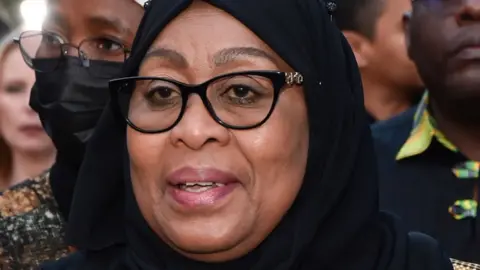Kenya has lodged a formal protest with the East African Community (EAC) over Tanzania’s controversial decision to ban non-citizens from engaging in 15 categories of business activities. Nairobi says the move violates the Common Market Protocol, which guarantees the free movement of goods, labour, services, and capital among EAC member states.
In a letter addressed to EAC Secretary General Veronica Nduva, Kenya’s Principal Secretary for EAC Affairs, Dr Caroline Karugu, urged the regional bloc to intervene swiftly. She cited specific breaches of Articles 13(1), 13(3)(a), 13(5), 13(8), and 13(9) of the Common Market Protocol, calling Tanzania’s directive a serious threat to regional economic integration.
Tanzania’s new regulation, dubbed the Business Licensing (Prohibition of Business Activities for Non-Citizens) Order, 2025, prohibits foreigners including EAC citizens from operating in sectors such as mobile money transfer (e.g., M-Pesa), local retail trade, mobile phone repairs, domestic cleaning, salons, barbershops, tour guiding, and small-scale mining, among others. Violators face stiff penalties, including fines of no less than TSh10 million, jail terms of up to six months, and revocation of residency and work permits.
The directive further bars licensing authorities from issuing or renewing permits for these activities if applied for by non-citizens.
Dr Karugu said the order undermines the principles of regional integration, warning it could set a dangerous precedent if left unchallenged. The protest underscores rising trade tensions in the region, where non-tariff barriers and protectionist policies have often stalled progress on economic integration.
Cabinet Secretary for Foreign and Diaspora Affairs, Musalia Mudavadi, confirmed Kenya is pursuing diplomatic solutions. “We are consulting with Tanzania through diplomatic channels. President Ruto, as the current chair of the EAC Summit, has engaged President Samia Suluhu and her Trade Minister,” he said on Wednesday.
The matter is expected to be escalated to the EAC Council of Ministers for further deliberation, at a time when the bloc is seeking deeper harmonisation of trade and investment laws across partner states.

